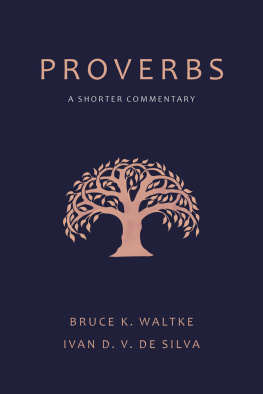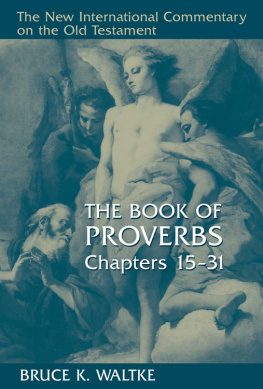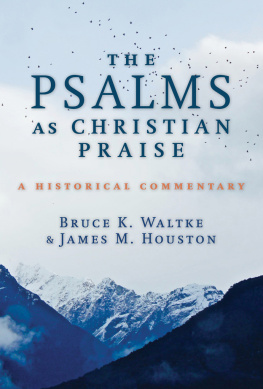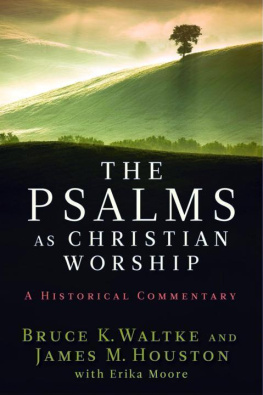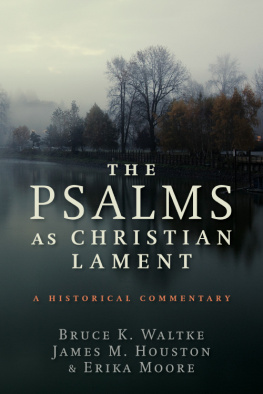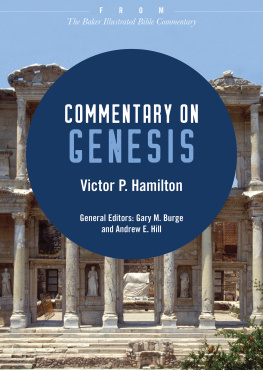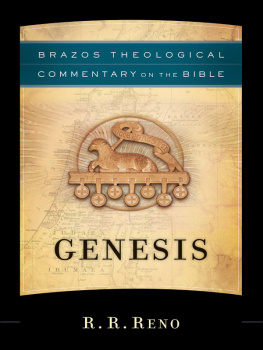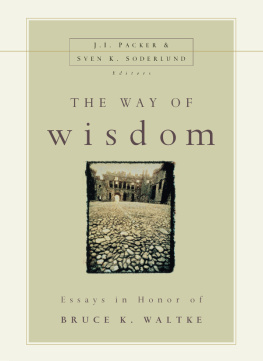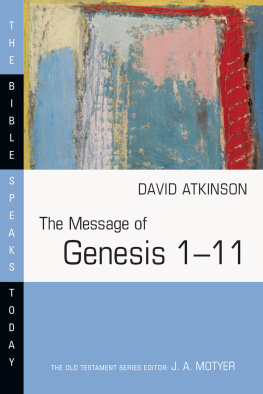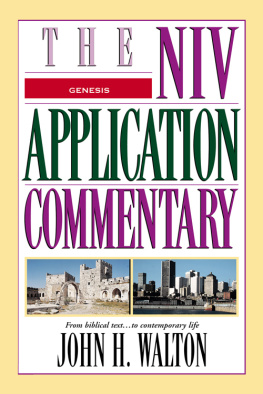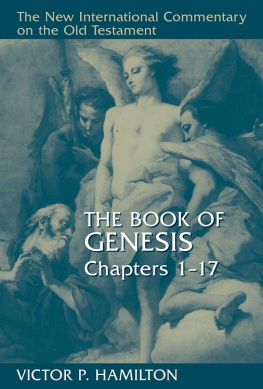Bruce K. Waltke - Genesis: A Commentary
Here you can read online Bruce K. Waltke - Genesis: A Commentary full text of the book (entire story) in english for free. Download pdf and epub, get meaning, cover and reviews about this ebook. year: 2016, publisher: Zondervan Academic, genre: Religion. Description of the work, (preface) as well as reviews are available. Best literature library LitArk.com created for fans of good reading and offers a wide selection of genres:
Romance novel
Science fiction
Adventure
Detective
Science
History
Home and family
Prose
Art
Politics
Computer
Non-fiction
Religion
Business
Children
Humor
Choose a favorite category and find really read worthwhile books. Enjoy immersion in the world of imagination, feel the emotions of the characters or learn something new for yourself, make an fascinating discovery.
- Book:Genesis: A Commentary
- Author:
- Publisher:Zondervan Academic
- Genre:
- Year:2016
- Rating:4 / 5
- Favourites:Add to favourites
- Your mark:
Genesis: A Commentary: summary, description and annotation
We offer to read an annotation, description, summary or preface (depends on what the author of the book "Genesis: A Commentary" wrote himself). If you haven't found the necessary information about the book — write in the comments, we will try to find it.
This landmark commentary marshals the vast experience and brilliant insights of one of todays most revered Old Testament scholars. To those familiar with the work of Bruce K. Waltke, the significance and value of Genesis will be instantly apparent. Others who are unfamiliar with Waltke have only to read the first few chapters to understand why he has earned the reputation of a scholars scholar, and why this masterful volume stands like a monolith among Old Testament commentaries. Exploring the first book of the Bible as theological literature, Waltke illuminates its meanings and methods for the pastor, scholar, teacher, student, and Bible-lover. Genesis strikes an unusual balance by emphasizing the theology of the Scripture text while also paying particular attention to the flow and development of the plot and literary techniquesinclusion, irony, chiasm, and concentric patterningthat shape the message of the book of beginnings. Genesis Models the way to read and interpret the narratives of the book of Genesis Provides helpful exegetical notes that address key issues and debates surrounding the text Includes theological reflections on how the message addresses our contemporary theological and social issues, such as ecology, homosexuality, temperance, evil, prayer, and obedience Addresses critical interpretive issues, such as authenticity, date, and authorship For all the authors formidable intellect and meticulous research, Genesis is amazingly accessible. This is no mere study tool. Lucidly and eloquently written, it is a work of the heart that helps us not only to understand deeply Gods Word in its context, but also to consider how it applies to us today.
Bruce K. Waltke: author's other books
Who wrote Genesis: A Commentary? Find out the surname, the name of the author of the book and a list of all author's works by series.


